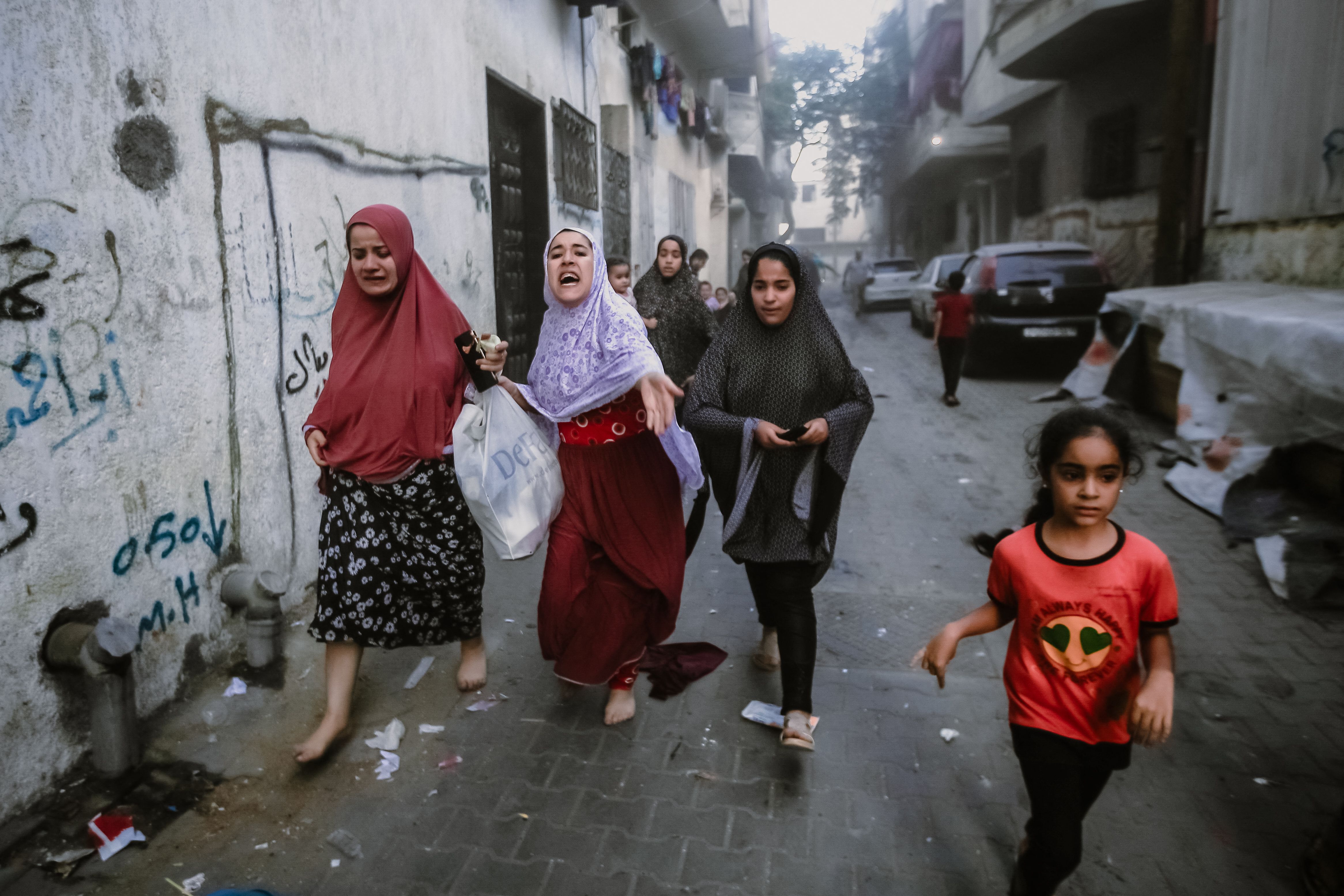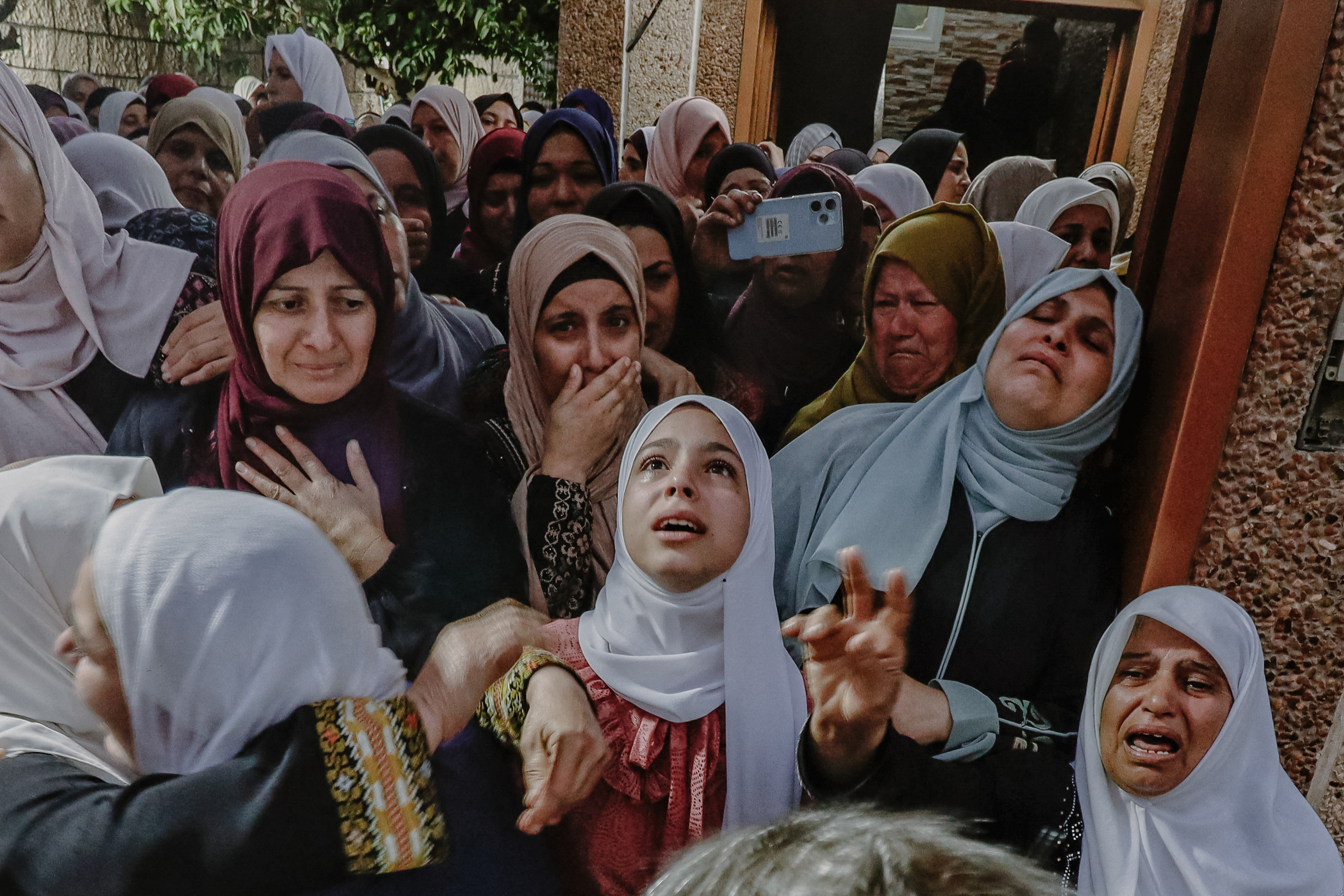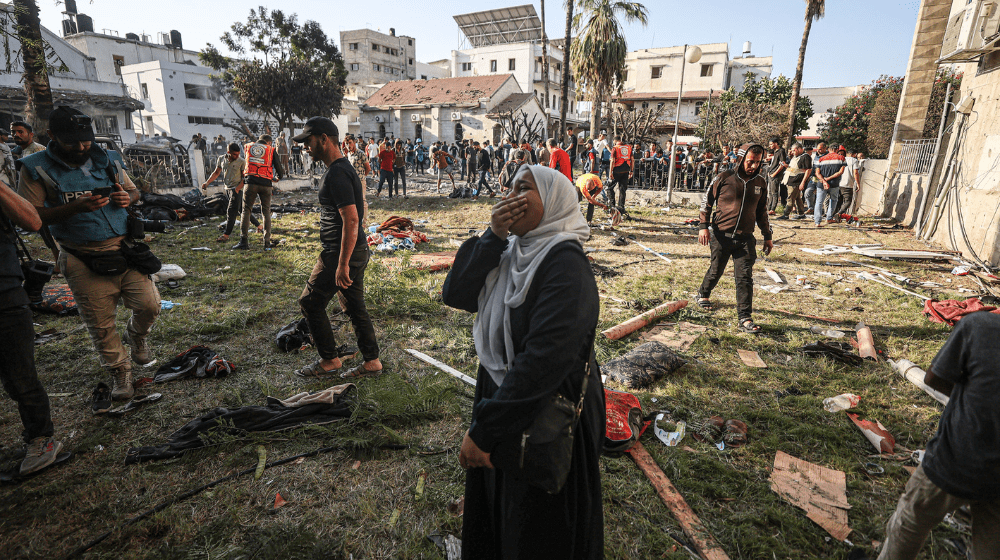"I had no idea where or how I was going to deliver my baby,” says a woman caught in the chaos and destruction of the escalating conflict in Gaza.
Her contractions were growing more intense, and she finally arrived at the Al-Shifa Hospital, where wounded people were scattered across the floor. She delivered safely, but was discharged just three hours later to make room for more pregnant women and wounded people.
"We cannot ignore the dire situation faced by pregnant women,” says a midwife at Al Shifa Hospital. Many take shelter in schools. They lack basic essentials like clothing and hygiene items, privacy or access to bathrooms. Access to primary health care is just a dream. Some are forced to give birth at home or on the way to hospital.”
Among the 2.2 million people in Gaza, one in four are women and girls of reproductive age. They need urgent access to reproductive health supplies and services. 50,000 women in Gaza are currently pregnant, around 5,500 are due to deliver in the next 30 days and over 840 may experience child-birth related complications.

The health system in Gaza is on the brink of collapse. While the first aid convoys have entered Gaza, fuel has not yet been allowed in. With Gaza under siege without water and electricity, fuel has become a life-saving commodity as it is needed for generators to desalinate water and to power hospitals.
"We’re operating beyond capacity. Our medical teams are overwhelmed and have been working tirelessly around the clock. If we run out of fuel, the hospital may be repurposed as a mass burial site," says the Director of Al Shifa Hospital, Gaza’s largest medical facility.
Glimmer of hope
UNFPA is dispatching life-saving sexual and reproductive health supplies and vital hygiene items for women and girls. A total of 3,000 dignity kits have been handed over to the Egyptian Red Crescent for distribution in Gaza, with additional kits being prepared.
UNFPA has delivered supplies of crucial drugs used to treat preeclampsia in pregnant women to the Ministry of Health in Gaza and will continue to stockpile and deliver essential medicines, medical supplies and reproductive health kits for Gaza and the West Bank.
UNFPA is also running a helpline with counsellors and doctors available to help traumatized youth and women. A midwifery line should soon offer support to women giving birth.
In the West Bank, the Ministry of Health has redeployed midwives from hospitals to Safe Motherhood Emergency Centres supported by UNFPA, ensuring that midwives are accessible in every community. In addition, online support systems and referral services help ensure that women will have continued access to sexual and reproductive health care.
With nearly half of Gaza’s population displaced, the risk of gender-based violence has increased exponentially for women and girls who are on the move. UNFPA is providing cash and voucher assistance to support case management for gender-based violence, as well as providing psycho-social support services and prevention, protection and mitigation support.

UNFPA is calling for $6.9 million to support emergency reproductive health and gender-based violence services to people in Gaza and the West Bank.
World must do more
Aid that entered Gaza on October 21 "is a small beginning but far from enough", UNFPA and four more UN agencies said in a joint statement calling for a humanitarian ceasefire, safe access to civilians, protection of aid workers and for all sides to uphold international humanitarian law.
“Time is running out before mortality rates could skyrocket due to disease outbreaks and lack of healthcare capacity,” the agencies warned.
“We call for safe and sustained access to water, food, health – including sexual and reproductive health – and fuel, which is necessary to enable essential services,” they said.
“Gaza was a desperate humanitarian situation before the most recent hostilities. It is now catastrophic. The world must do more.”
“Flows of humanitarian aid must be at scale and sustained, and allow all Gazans to preserve their dignity.”


